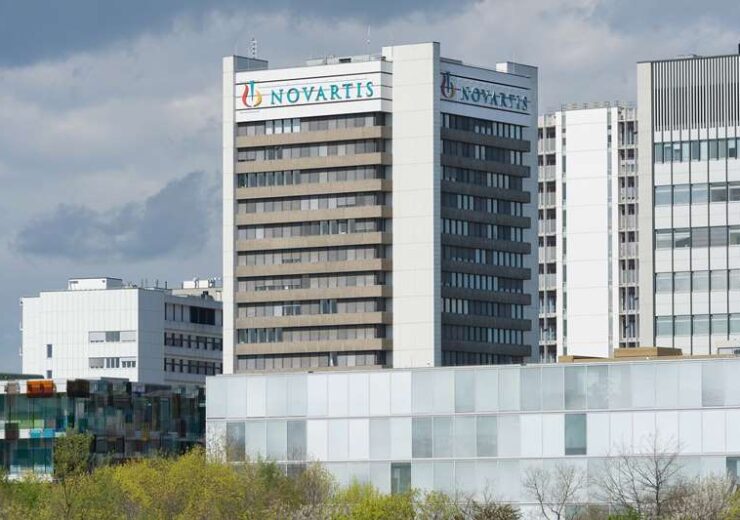In the Phase 2 study, iptacopan reduced 49% proteinuria, improved plasma C3 levels, stabilised renal function, and was safe and tolerable

Novartis tower with surrounding buildings. (Credit: Novartis AG.)
Novartis has unveiled positive data for its investigational oral treatment iptacopan from interim analysis of a Phase 2 study evaluating C3 glomerulopathy (C3G) patients who have undergone kidney transplant and C3G recurrence.
Iptacopan is an oral, small-molecule, reversible inhibitor of factor B, an important serine protease in the alternative pathway of the complement cascade.
In the Phase 2 study, iptacopan has reduced the proteinuria by 49%, as measured by UPCR assessment compared to baseline values, in twelve patients with C3G after 12 weeks.
The drug inhibited alternative complement pathway activity, improved plasma C3 levels, and stabilised renal function, as assessed by estimated glomerular filtration rate (eGFR).
Also, treatment using iptacopan demonstrated a favorable safety and tolerability profile in the study with no reported deaths, suspected serious adverse events or adverse events leading to treatment discontinuation.
Lead study investigator Edwin Wong said: “Proteinuria indicates the presence of inflammation in the kidney. Results from this study demonstrate that iptacopan significantly reduces proteinuria in patients with C3G.
“This data also highlights iptacopan’s ability to strongly and specifically inhibit the alternative complement pathway, targeting the underlying cause of this disease and potentially providing a much needed treatment option for C3G patients who have significant unmet needs.”
Iptacopan has received European Medicines Agency (EMA) PRIME designation in C3G, a rare and severe form of primary glomerulonephritis, and orphan drug designation in IgA nephropathy (IgAN).
C3G is an ultra-rare and severe form of primary glomerulonephritis, characterised by complement dysregulation, prevalent in adolescents and young adults.
The disease is associated with poor prognosis, where nearly 50% of the patients progress to end-stage renal disease (ESRD) within 10 years, and the disease recurs in 50 to 70% of the patients who have undergone kidney transplant, said the company.
Novartis to conduct a Phase 3 study to evaluate iptacopan in PNH
In addition to C3G, iptacopan is being developed for various other renal conditions, including IgA nephropathy, atypical hemolytic uremic syndrome and membranous nephropathy.
The Swiss drugmaker intends to conduct a randomised, active-comparator controlled open-label Phase 3 trial to evaluate the efficacy and safety of iptacopan in paroxysmal nocturnal hemoglobinuria (PNH) patients, in December 2020.
Novartis global drug development head and chief medical officer John Tsai said: “Iptacopan is the most advanced asset in our nephrology pipeline. These data demonstrate that it has the potential to improve the lives of patients with C3G.”
